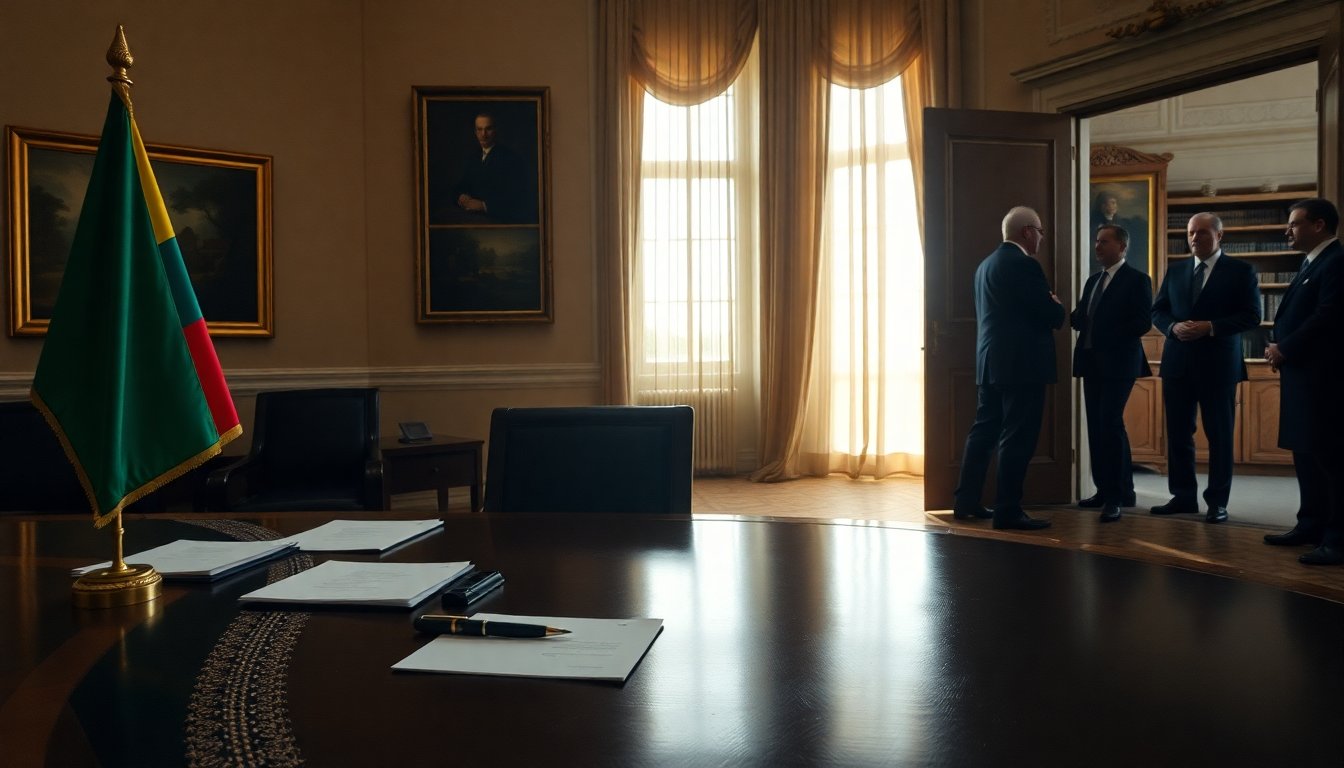Table of Contents
In a significant political shake-up, Lithuania’s Prime Minister Inga Ruginienė has dismissed Defense Minister Dovilė Šakalienė. This decision arises amid escalating tensions surrounding the nation’s defense budget and perceived threats from neighboring Russia. This marks the second high-profile exit from Ruginienė’s cabinet, highlighting the challenges she faces in maintaining unity and direction within her government.
The context of this political drama is Lithuania’s tenuous position as one of the three Baltic states bordering Russia. With the possibility of aggression from Moscow looming, the Lithuanian government is pressured to enhance its military capabilities and secure its borders. As regional tensions rise, the defense budget has become a focal point of contention, rendering Šakalienė’s lobbying efforts particularly controversial.
Budget disagreements and ministerial fallout
Prime Minister Ruginienė publicly criticized Šakalienė for allegedly undermining the government by discussing the defense budget privately with external influencers and journalists. Ruginienė accused her of a lack of transparency and collaboration, stating, “The recent events were the final straw.” She emphasized that the decision to let Šakalienė go, while unexpected, was necessary given the circumstances.
Ruginienė’s comments revealed her dissatisfaction with what she termed a “complete lack of willingness to cooperate” within her cabinet. Following a meeting with President Gitanas Nausėda, she addressed the media, expressing regret over the dismissal and acknowledging the difficulties it poses for her leadership.
Resignation or dismissal?
In response, Šakalienė claimed she had resigned voluntarily rather than being ousted. She shared her resignation letter on social media, stating, “I kept my promise. The resignation letter was sent this morning at 10 a.m.” She expressed disappointment over the inability to align with the prime minister on critical national defense issues, indicating that their views on strengthening the country’s defense differed fundamentally.
During her tenure, Šakalienė advocated for a defense budget exceeding 5.5 percent of Lithuania’s GDP. The government proposed a budget of 5.38 percent for 2026, pending parliamentary approval. The urgency of these budget discussions is significant, especially given the backdrop of Russian military activities in the region.
Implications for Lithuania’s defense strategy
Amid this political turbulence, Interior Minister Vladislavas Kondratovičius will temporarily oversee the defense ministry, one of the country’s most strategic departments. President Nausėda’s chief advisor on national security, Deividas Matulionis, emphasized the critical nature of the defense budget, labeling it as “historical” and essential for both internal security and Lithuania’s international standing.
Matulionis remarked that the future of military collaborations, including the deployment of a German brigade and the presence of American troops, hinges on the successful passage of the defense budget. He noted, “Everything is at stake,” indicating the high stakes involved in the ongoing budget discussions.
Future prospects and potential candidates
In light of these developments, discussions about the next defense minister have already begun, though no candidates have been publicly named. The resignation of Šakalienė, following the earlier departure of Culture Minister Ignotas Adomavičius, underscores the instability within Ruginienė’s administration as she seeks to solidify her cabinet.
As Lithuania grapples with these challenges, the government remains committed to bolstering its defense capabilities in a volatile geopolitical landscape. Upcoming decisions regarding the defense budget and ministerial appointments will be crucial in shaping the country’s future security policy.


